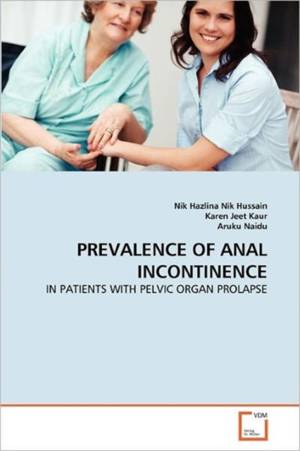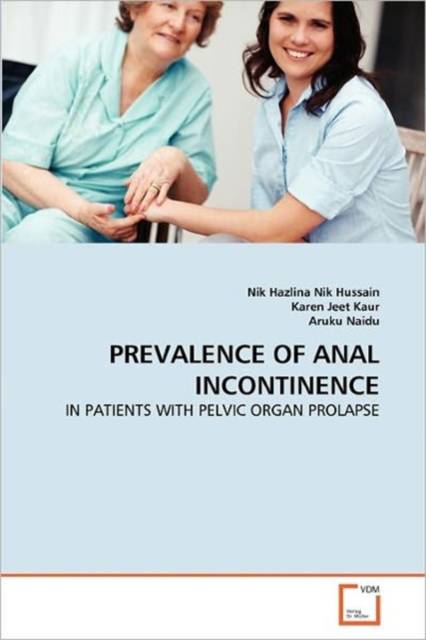
- Afhalen na 1 uur in een winkel met voorraad
- Gratis thuislevering in België vanaf € 30
- Ruim aanbod met 7 miljoen producten
- Afhalen na 1 uur in een winkel met voorraad
- Gratis thuislevering in België vanaf € 30
- Ruim aanbod met 7 miljoen producten
Zoeken
PREVALENCE OF ANAL INCONTINENCE
IN PATIENTS WITH PELVIC ORGAN PROLAPSE
Nik Hazlina Nik Hussain, Karen Jeet Kaur, Aruku Naidu
Paperback | Engels
€ 68,45
+ 136 punten
Omschrijving
Anal incontinence, is defined as voluntary loss of the control of intestinal contents, covers from slight traces of stool in the underwear during the loss of wind to marked episodes of uncontrollable evacuation of soft or hard faeces. The causes for this humiliating symptoms can be multiple and complex. Medical practitioners do often not realize that anal incontinence can be prevented and treated. Quality of life of these women can be significantly improved after the appropriate diagnostic tests and subsequent individual therapy. This study aimed to observe the prevalence of anal incontinence in gynaecology patients with uterovaginal prolapse and how it affects quality of life of these women. Anal incontinence also has a significant lifestyle impact on these patients, disabling them from carrying out daily activities, prayers and traveling.
Specificaties
Betrokkenen
- Auteur(s):
- Uitgeverij:
Inhoud
- Aantal bladzijden:
- 112
- Taal:
- Engels
Eigenschappen
- Productcode (EAN):
- 9783639356465
- Verschijningsdatum:
- 13/05/2011
- Uitvoering:
- Paperback
- Afmetingen:
- 152 mm x 229 mm
- Gewicht:
- 177 g

Alleen bij Standaard Boekhandel
+ 136 punten op je klantenkaart van Standaard Boekhandel
Beoordelingen
We publiceren alleen reviews die voldoen aan de voorwaarden voor reviews. Bekijk onze voorwaarden voor reviews.








